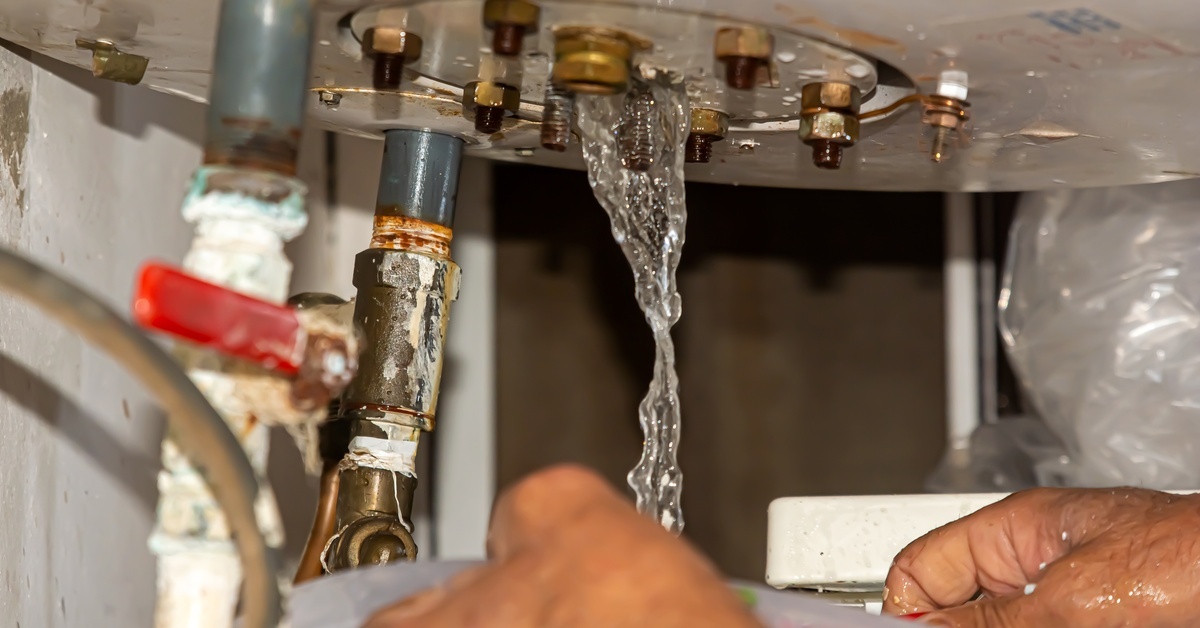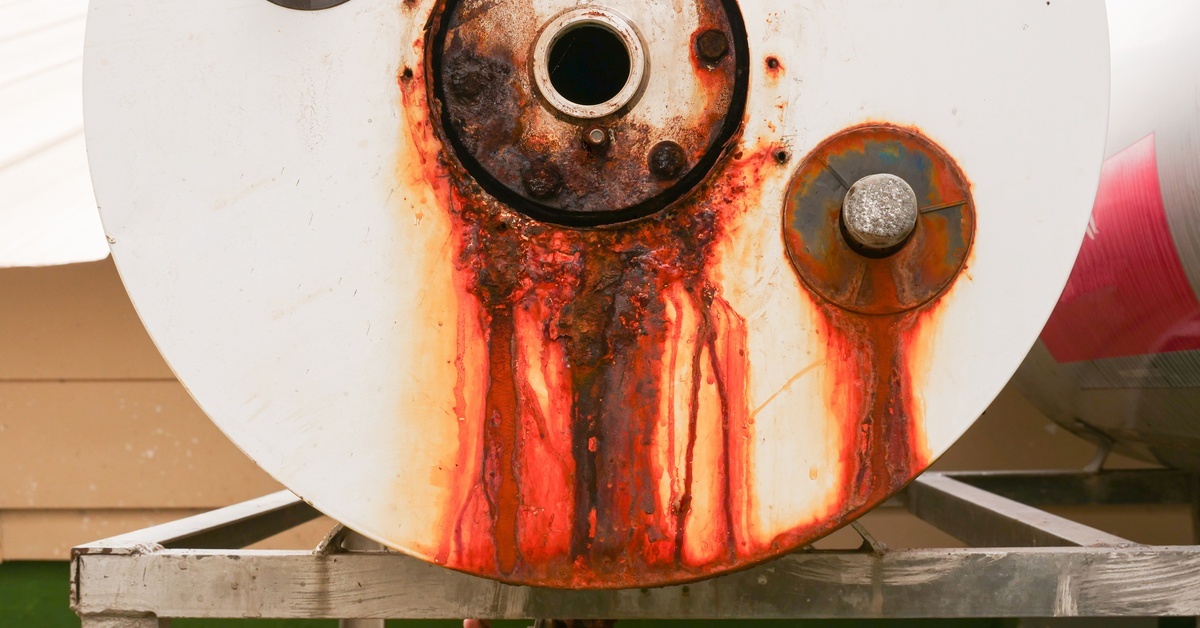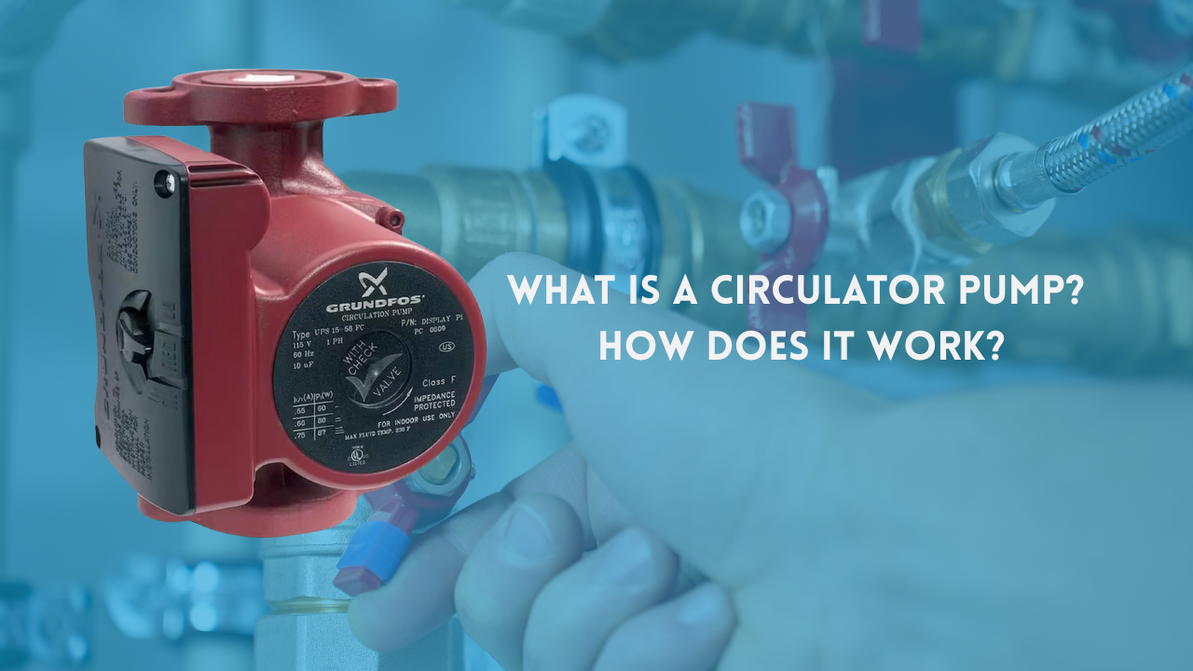7 Signs That Your Water Heater Is Leaking
A water heater might not be the flashiest appliance in your home, but when it starts acting up, it can quickly become the star of a stressful situation. Imagine stepping into your garage or basement and spotting a suspicious puddle creeping out from under the tank. Or worse, you’re halfway through a shower when the hot water sputters out, leaving you with questions and maybe some goosebumps.
Leaks in a water heater often start small, so they’re annoyingly easy to overlook. A tiny drip might not grab your attention right away, but over time, that seemingly harmless issue can grow into something much more damaging. That’s why it’s so important to catch the signs early, long before your floors, walls, or wallet pay the price.
This blog post is your guide to spotting the seven telltale signs that your water heater is leaking. From unusual noises, changes in water temperature, and other subtle clues to more obvious rust spots and puddles, you’ll learn how to identify problems before they spiral. By the end, you’ll feel equipped to handle any water heater woes with confidence and have a plan to protect your home.
Fluctuations in Water Temperature
Your water heater will struggle to maintain a steady hot water supply if it loses water through cracks or faulty valves. You may find that showers swing between too hot and too cold or that you’re running out of hot water quicker than usual.
These fluctuations are a sign that your heater could be on its way out. Check your thermostat settings first to rule out simple user error. If the issue persists, it’s time to inspect the tank and its components. Uneven temperatures don’t usually fix themselves, so prompt action could save you the hassle of running out of hot water entirely.
Puddles Around the Base
While it could be a simple case of condensation, puddles usually mean there’s a leak. The leak might be small now, perhaps just a slow trickle escaping through a worn seal or a crack in the tank. However, even minor leaks can grow into bigger problems over time.
Thoroughly check to confirm that a nearby pipe or other external issue isn’t causing the puddle. If water keeps appearing around the base, it’s likely time to investigate further. Ignoring it could damage your floors or walls, racking up costly repairs. You may also want to consider upgrading to a more efficient option. Many plumbing supply stores offer tankless water heaters for sale, which eliminates the risk of puddles altogether since they don’t hold standing water.

Rusty Water Appearing in Taps
Rust could be spreading inside your tank if you notice discolored water coming from your hot water taps. Corrosion is one of the main culprits behind leaks in water heaters. A rusty interior weakens the metal walls, leaving them prone to cracks and breaks.
Perform a quick test by filling a glass of hot water and a glass of cold water. Your tank is likely the issue if only the hot water looks rusty. Ignoring corrosion doesn’t just risk a leak. That rusty water can stain clothes, dishes, or even bathtub surfaces.
Good To Know:
Flushing the tank and additional regular maintenance can sometimes prevent this issue. However, a repair might not be enough if the rust is widespread. At that point, replacing the unit could save you a lot of trouble down the road.
Odd Noises Coming from the Tank
A water heater that starts making new noises is trying to tell you something. Banging, popping, or gurgling sounds typically mean sediment has built up at the bottom of the tank. This hardened sediment can trap heat, causing small explosions of steam as the water gets caught underneath it. Over time, that trapped pressure can stress the tank and lead to cracks or leaks.
Loose valves or aging components might also be responsible for some of these sounds. Regularly flushing your tank clears out sediment and extends its life, but if the noises continue, more significant repairs or a replacement might be in order.
Higher Utility Bills
The heater must work overtime to keep the remaining water at the right temperature when water escapes from the tank. That extra effort adds up quickly on your bills. Small leaks can cause just as big a drain on energy costs as larger ones, especially if they go unnoticed for weeks or months.
Checking your water heater is always worth it if you’ve ruled out all other potential causes for higher bills, such as increased usage or weather changes. A professional inspection can identify hard-to-spot leaks, which saves you money by catching the problem early.
Moisture or Mold Nearby
A damp smell, signs of mold on nearby walls or flooring, or increased humidity around the tank could all signal a water heater leak. Even slow drips can leave the surrounding area damp enough to create a breeding ground for mold and mildew.
These issues don’t just affect your home’s appearance. Mold spores can trigger allergies or respiratory problems, especially for anyone sensitive to air quality. You might also notice wood floors starting to warp or drywall softening near the unit. While cleaning the mold and drying the area temporarily helps, fixing the leak is the only long-term solution.

Visible Damage to the Tank
Small cracks, dents, or rust spots on the tank’s exterior may look harmless, but these weak points can quickly get worse under the constant pressure of hot water. A leaking tank usually isn’t repairable, so spotting visible damage early can save you time and stress.
Also, keep an eye out for condensation on the tank, as it could mean a slow leak in progress. While regular inspections can help you catch damage before it becomes a bigger issue, you may want to replace an aging tank with a more efficient model if the damage seems extensive.
Now What?
Eagle-eyed water heater maintenance keeps the heart of your home running smoothly. A reliable supply of hot water means warm showers, clean dishes, and loads of laundry handled without a hitch. Life simply flows better when your water heater is working as it should! If you’re noticing changes that seem off, trust your instincts and look into it sooner rather than later. Looking out for these seven signs that your water heater is leaking keeps small nuisances from turning into bigger hurdles down the line.
Consider it an opportunity to future-proof your home. Consider scheduling routine maintenance, investing in a newer model, or researching energy-efficient options that could bring long-term benefits. And remember, an expert’s guidance is just a call away here at 24hr Supply!
Recent Posts
-
What Causes Pipe Corrosion?
Pipe corrosion occurs when metal reacts with water, oxygen, and minerals over time. Factors that spe …Feb 2nd 2026 -
Commercial vs. Residential Plumbing: 15 Key Differences You Need to Know
Plumbing might seem straightforward at first glance, but residential and commercial systems are fund …Feb 2nd 2026 -
What Is a Circulator Pump and How Does It Work?
Water needs to keep moving efficiently in plumbing and HVAC systems, and that’s where a circulator p …Feb 2nd 2026



